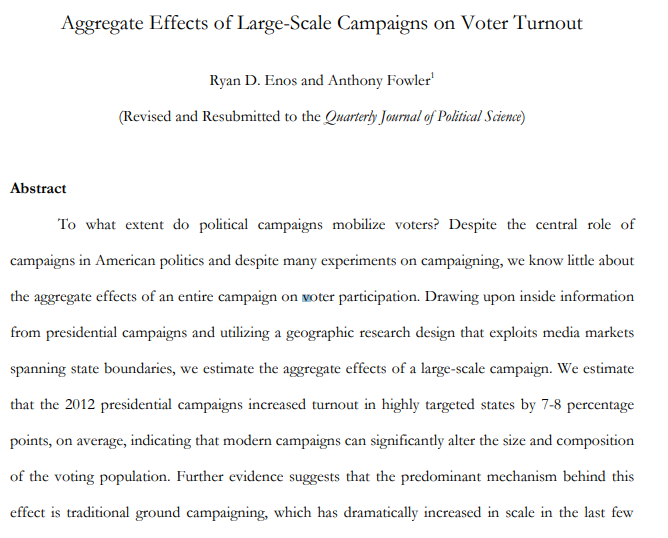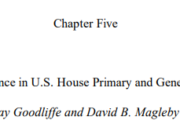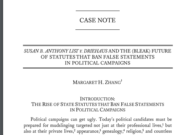In this study, authors Ryan D. Enos, Assistant Professor in the Department of Government at Harvard University, and Anthony Fowler, Assistant Professor in the Harris School of Public Policy Studies at the University of Chicago, assess to what extent political campaigns mobilize voters.
Despite the central role of campaigns in American politics and despite many experiments on campaigning, little research exists on the aggregate effects of an entire campaign on voter participation. Drawing upon inside information from presidential campaigns and utilizing a geographic research design that exploits media markets spanning state boundaries, the authors estimate the aggregate effects of a large-scale campaign.
Enos and Fowler estimate that the 2012 presidential campaigns increased turnout in highly targeted states by 7-8 percentage points, on average, indicating that modern campaigns can significantly alter the size and composition of the voting population. Further evidence suggests that the predominant mechanism behind this effect is traditional ground campaigning, which has dramatically increased in scale in the last few presidential elections. Additionally, the authors find no evidence of diminishing marginal returns to ground campaigning, meaning that voter contacts, each likely exhibiting small individual effects, may aggregate to large effects over the course of a campaign.














